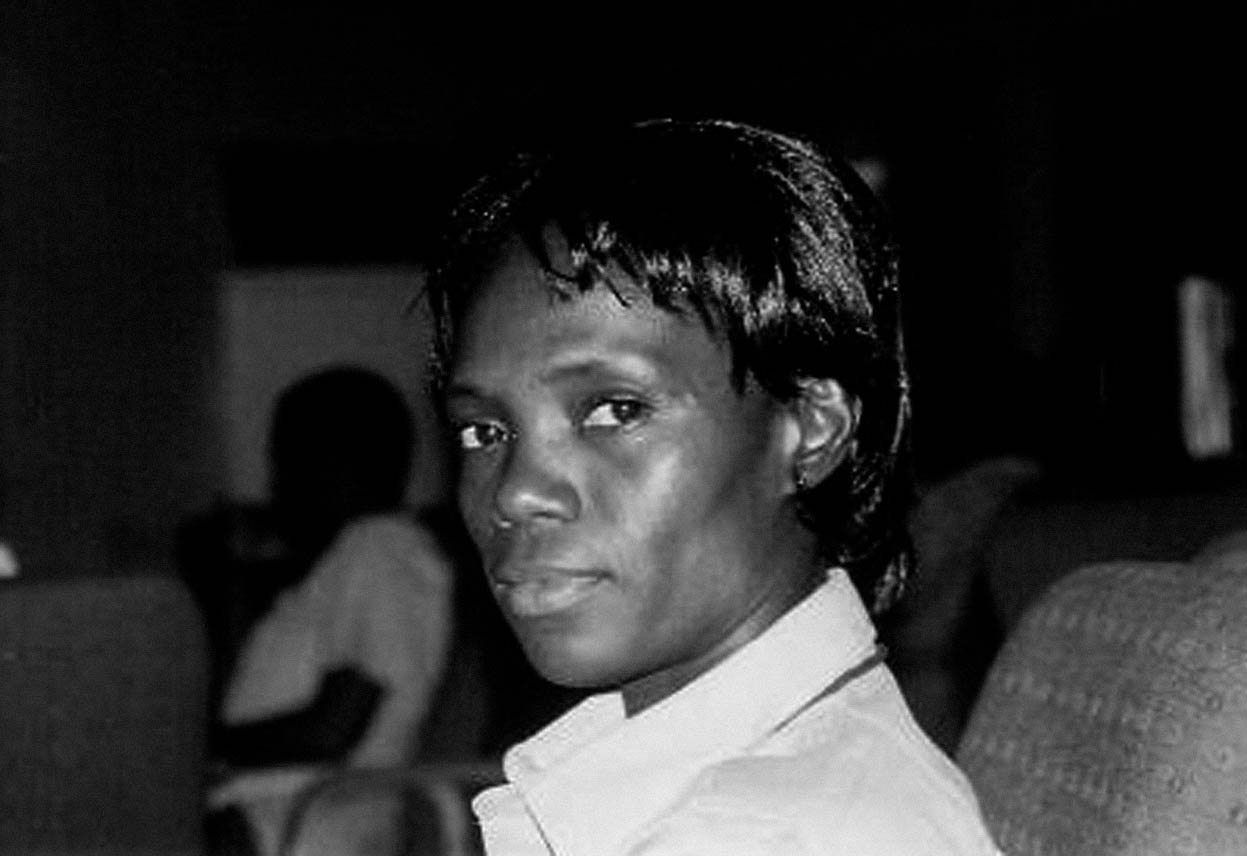The podcast series includes the Ugandan Pride parade and a
tribute to Seirra Leonean activist FannyAnn Eddy, who was murdered in 2004. (Isaac Kasamani/AFP)
An eight-part podcast series looking into the experiences of “queer Africans living, loving, thriving and surviving on the continent and in the diaspora” recently hit the virtual world.
Titled AfroQueer, the weekly series covers topics such as law, migration, film, race, censorship, family and sex. The series is put together by an African queer-focused digital media organisation None on Record.
Selly Thiam, the series’ executive producer, explains why a podcast was the chosen medium. “We wanted to tell more stories and didn’t really want to do it through video, which can be really time-consuming. And because a lot of us [at None on Record] consume a lot of podcasts, it was kind of just an organic idea to do [it] this way.”
Aida Holly-Nambi, None on Records’ arts and culture director, is one of the series’ producers and reporters. “The beauty of podcasts is that, when it comes to consuming queer African stories, there is a safety in being able to listen privately through your headphones without people knowing what you’re listening to. So, for those of us [who are in places] where safety is a concern.”
Launched in July, the first few episodes pay tribute to FannyAnn Eddy, the lesbian Sierra Leonean activist who was murdered in 2004, covers the controversial evolution of Johannesburg Pride, focuses on Uganda Pride and looks into whether the gay dating app, Grindr, is doing enough to protect its users in Africa, particularly in Kenya and Nigeria.

[FannyAnn Eddy]
“The key for us is to have a variety of voices and stories from different countries,” says Holly-Nambi. “The stories have to, in some way, be complicated and take us somewhere unexpected or revealing, even if it’s a story people might think they know.”
In a statement announcing the launch of the series, Thiam says: “We want to share the stories of inspiring, original, talented LGBT [lesbian, gay, bisexual and transgender] Africans around the continent.”
Speaking to the Mail & Guardian, however, she concedes the difficulty in achieving this. “Trying to find uplifting stories is really hard. So we had to really focus on how to tell stories in a different way. We try and make sure we didn’t fall into the pitfall of telling really depressing stories, even though that’s the reality for a lot of us. We try to look for stories where people become victorious or overcome a challenge, not only focusing on the challenge itself. So, some complex storytelling.”
Eschewing the conventional tropes about queer lives in Africa is important, says Thiam, “because the kinds of narratives that are shared about African LGBT experiences are generally only stories of victimisation and violence”.
“Even in our first four episodes, we have a lot of that happening,” she says, adding: “But we also have stories of resilience and people pushing against different forms of oppression.”
Holly-Nambi agrees. “The stories we hear and learn about most tend to be stories of adversity. Given that we’re operating on the African continent, getting the nuanced, lovely stories about things that aren’t necessarily anchored in hardship can be tricky. But we know that they’re there. I think we’re finding our way in making sure that this becomes a reality.”
The team is brainstorming ideas for a second season of episodes.
For Holly-Nambi, the continued push to share stories of queer African experiences, particularly with podcasts, is essential as it “shortens the distance between each other on the African continent”.
“I was at a conference in Botswana recently. There, I met people from all over — Ghana, Tunisia, South Sudan. And it was only in that space that I could really learn what they were up to. So many times, we would see each other at conferences or whatever in Europe or the [United] States but we would rarely get the chance to sit with our brothers and sisters from other African countries. To me, a podcast is a really beautiful way to do this.”
Carl Collison is the Other Foundation’s Rainbow Fellow at the M&G
